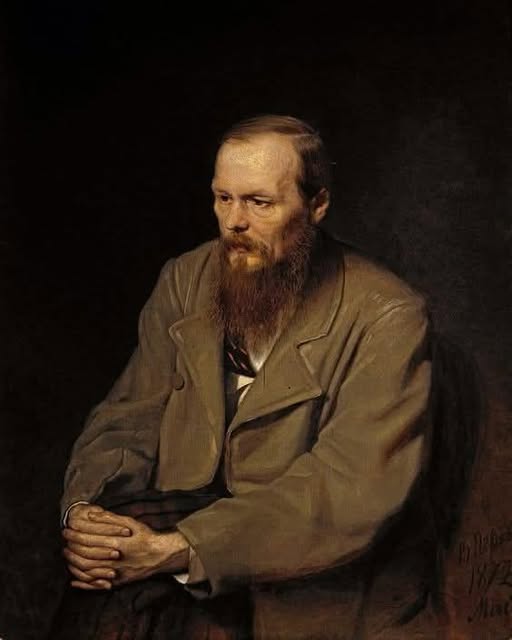Fyodor Mikhailovich Dostoevsky (1821–1881) was one of the greatest Russian novelists, philosophers, and essayists, whose works explored the depths of the human soul, morality, free will, and the struggles between faith and doubt.
Biography
Dostoevsky was born on November 11, 1821, in Moscow, Russia, into a middle-class family. His father was a doctor at the Mariinsky Hospital for the Poor, and his mother came from a merchant background. From an early age, Dostoevsky showed a keen interest in literature. After the death of his mother when he was 15, he was sent to the Military Engineering Academy in St. Petersburg, although his true passion remained writing.
In 1849, Dostoevsky was arrested for participating in a group that discussed banned books critical of the Tsarist regime. He was sentenced to death, but at the last moment, the execution was commuted to four years of hard labor in a Siberian prison camp, followed by mandatory military service. This traumatic experience profoundly shaped his worldview and later writings.
Personal Life
Dostoevsky’s personal life was marked by hardship and tragedy. He suffered from epilepsy, which haunted him throughout his life. After his release from prison, he returned to St. Petersburg and married Maria Dmitrievna Isaeva, a widow. The marriage was unhappy, and Maria died in 1864.
Later, Dostoevsky married his stenographer, Anna Grigoryevna Snitkina, who became his devoted partner and helped him overcome his gambling addiction. Despite financial struggles and the burden of debt, especially due to his passion for gambling, Anna’s support gave Dostoevsky stability during his later years. They had four children, although two died in infancy.
Literary Work
Dostoevsky’s literary legacy is vast and deeply influential. His early novel Poor Folk (1846) won him initial fame. However, it was after his Siberian exile that he produced his most profound and philosophical works. His novels often explore psychological depth, existential dilemmas, crime, punishment, and redemption.
Among his masterpieces are:
- Notes from Underground (1864) — considered one of the first works of existentialist literature.
- Crime and Punishment (1866) — a psychological study of guilt and moral struggle.
- The Idiot (1869) — portraying the conflict between innocence and a corrupt society.
- Demons (also known as The Devils or The Possessed, 1872) — a political and spiritual critique of revolutionary movements.
- The Brothers Karamazov (1880) — his final novel, regarded as his greatest, addressing profound themes of faith, doubt, free will, and the nature of evil.
Dostoevsky’s works have had a lasting impact on world literature, psychology, philosophy, and theology. Writers such as Franz Kafka, Albert Camus, Friedrich Nietzsche, and Sigmund Freud admired and were influenced by his deep exploration of the human psyche.
Dostoevsky died on February 9, 1881, in St. Petersburg. He is buried at the Tikhvin Cemetery at the Alexander Nevsky Monastery, where his grave remains a place of homage for readers and admirers from around the world.


